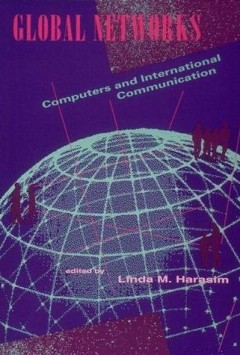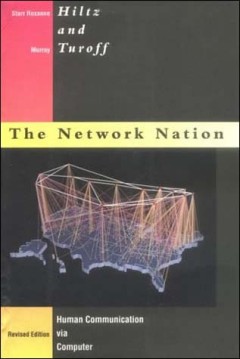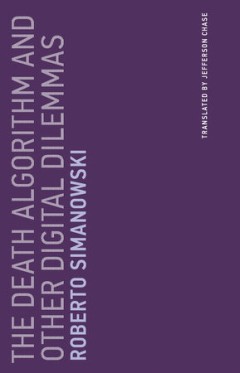Filter by

Paid :tales of dongles, checks, and other money stuff
Stories about objects left in the wake of transactions, from cryptocurrencies to leaf-imprinted banknotes to records kept with knotted string.OCLC-licensed vendor bibliographic record.
- Edition
- -
- ISBN/ISSN
- 9780262338332
- Collation
- 1 online resource (xxvi, 288 pages) :illustrations (some color).
- Series Title
- -
- Call Number
- -
Self-tracking
People keep track. In the eighteenth century, Benjamin Franklin kept charts of time spent and virtues lived up to. Today, people use technology to self-track: hours slept, steps taken, calories consumed, medications administered. Ninety million wearable sensors were shipped in 2014 to help us gather data about our lives. This book examines how people record, analyze, and reflect on this data, l…
- Edition
- -
- ISBN/ISSN
- 9780262334693
- Collation
- 1 online resource (xi, 233 pages) :illustrations.
- Series Title
- -
- Call Number
- -

Global networks : computers and international communication
Global Networks takes up the host of issues raised by the new networking technology that now links individuals, groups, and organizations in different countries and on different continents. The twenty-one contributions focus on the implementation, application, and impact of computer-mediated communication in a global context. Previously limited to scientific research, global networks now have a…
- Edition
- -
- ISBN/ISSN
- 0585020361
- Collation
- 1 online resource (xii, 411 pages) :illustrations
- Series Title
- -
- Call Number
- 005 GLO

The network nation :human communication via computer
A visionary book when it was first published in the late 1970s, The Network Nation has become the defining document and standard reference for the field of computer mediated communication (CMC). This revised edition adds a substantial new chapter on "superconnectivity" (invented and defined in the unabridged edition of the Online Dictionary of the English Language, 2067) that reviews the develo…
- Edition
- -
- ISBN/ISSN
- 0262291150
- Collation
- 1 online resource (xxxi, 557 pages)
- Series Title
- -
- Call Number
- -

The death algorithm and other digital dilemmas
In 'The Death Algorithm and Other Digital Dilemmas', Roberto Simanowski wonders if we are on the brink of a society that views social, political, and ethical challenges as technological problems that can be fixed with the right algorithm, the best data, or the fastest computer. For example, the "death algorithm " is programmed into a driverless car to decide, in an emergency, whether to plow in…
- Edition
- -
- ISBN/ISSN
- 9780262350662
- Collation
- 1 online resource (xxxi, 174 pages).
- Series Title
- -
- Call Number
- -
 Computer Science, Information & General Works
Computer Science, Information & General Works  Philosophy & Psychology
Philosophy & Psychology  Religion
Religion  Social Sciences
Social Sciences  Language
Language  Pure Science
Pure Science  Applied Sciences
Applied Sciences  Art & Recreation
Art & Recreation  Literature
Literature  History & Geography
History & Geography